45. David Axelrod
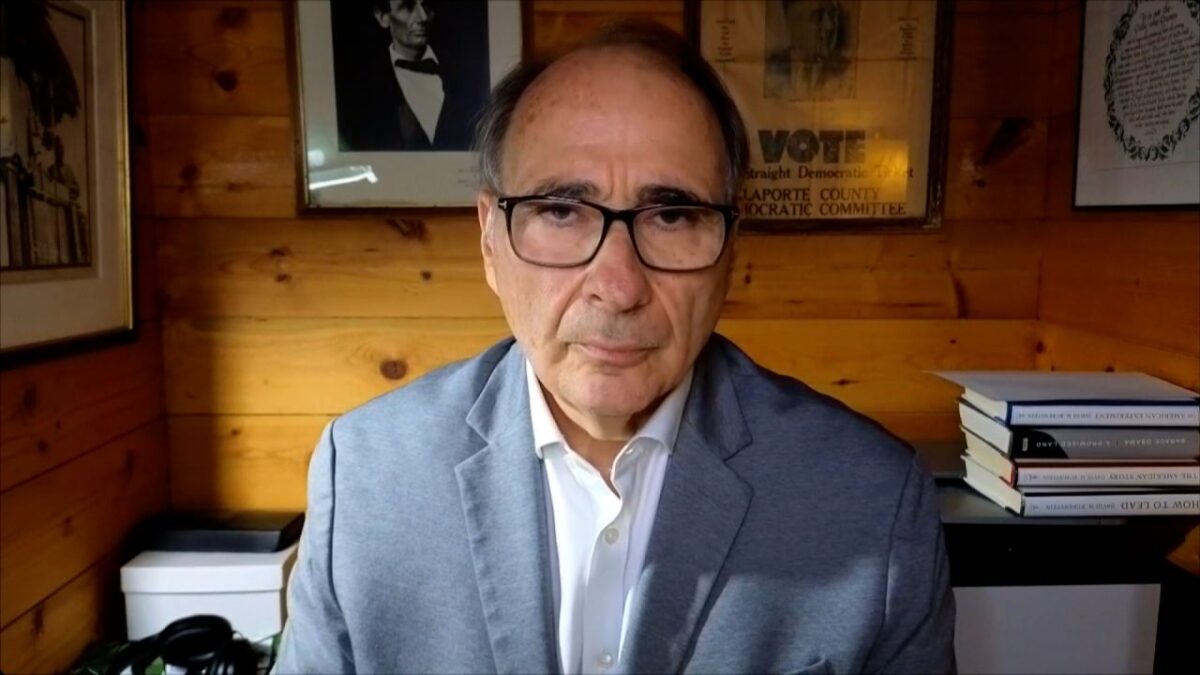
Veteran Democratic strategist David Axelrod was a fixture on CNN this year, and one of the most quoted pundits from both sources on sides of the aisle. He was one of the rare voices on the left unabashedly pouring cold water on Biden’s chances for victory from the beginning — especially after the president’s disastrous debate performance. His podcasts The Axe Files and Hacks on Tap were listened to closely by the Biden and Harris campaigns and unquestionably played a role in shaping Democrats’ messaging strategies. Having served as the architect of former President Barack Obama’s two successful presidential campaigns, Axe’s take carried weight. He avoided getting swept up in the “brat summer”-induced hysteria pervasive among the overly optimistic Democrats who convinced themselves Harris was sure to win. His doomsaying doesn’t just look canny in the soft glow of 20/20 hindsight, but rather reflects the words of a seasoned pol speaking from experience about where the Democrats’ weaknesses and vulnerabilities truly were. The Democrats did lose ground with core factions of their base, while failing to convert Independents and disaffected Republicans. Those failures validated Axelrod’s core arguments for how Democrats should run. Flipping the White House and key congressional and statewide seats back to blue in 2026 and 2028 will require a strategic shift. Axelrod is well-positioned to not just be an in-demand guest for cable news panels, but a major voice in his party moving forward.
44. Jen Psaki

Jen Psaki was influential in media long before the debut edition of her MSNBC show Inside With Jen Psaki in March of 2023. As Biden’s first press secretary, Psaki’s razor-sharp exchanges with reporters turned daily briefings into must-see TV. But those fireworks with Fox’s Peter Doocy are a distant memory, as 2024 saw her show — which performed strongly enough to be expanded to a second night — continue to be a reliable source of interviews with a mix of friendly Democratic figures, high-caliber analysts like Chris Wallace and Don Lemon, and newsmakers like Cassidy Hutchinson. What sets Inside With Jen Psaki apart are the host’s commentaries, which mix pragmatic Democratic politics and scathing GOP takedowns with insights that carry the authority of an experienced senior executive branch hand who is still very much an insider. Add to that her commentary on the big nights and you can understand why so many on the left start their takes with “Jen Psaki said…”
43. Theo Von

Theo Von crashed onto the scene in 2024 and ended the year as one of the most popular comedians and commentators on the internet, parlaying the niche success of his talk show into mainstream influence thanks to fascinating interviews with everyone from Bernie Sanders to JD Vance and even Trump himself. Von’s cracks and commentary, all delivered in his thick Louisiana drawl, were a pervasive presence on the Instagram feeds of many a young American. His real influence came to the fore as the election heated up, when Von’s candid and sometimes emotional interviews with key figures in politics and culture rocketed around the internet. Case in point: just one clip of Von explaining cocaine to Trump has been viewed more than 8 million times. Throughout it all, the comedian whose fame was launched, like many others, on Joe Rogan’s show, remained himself, just as comfortable interviewing Trump as he is Timothée Chalamet. With political candidates turning to podcasters like Von more than ever before in 2024, and guest Trump winning the election, expect Von’s star to rise even more over the next few years.
42. Kara Swisher and Scott Galloway

Kara Swisher and Scott Galloway are good talkers. Twice a week they hop on a call for a sharp and thoughtful conversation that touches on everything from politics to business to tech. Pivot, which they host for Vox, has become a podcasting mainstay with fans at the highest levels of major industries. On top of that, both Swisher and Galloway are regular fixtures on cable news and influential shows like Real Time with Bill Maher.
This year, Swisher published Burn Book, a bestselling memoir on her career as a star tech reporter turned media entrepreneur and omnipresent personality. She’s the 21st century embodiment of Gore Vidal’s famed wisdom about carnal pleasures and television: Swisher never passes up the opportunity to provide her expert insights on cable news, on a podcast, on a conference stage. Those who crave smart takes on the state of tech are better for it.
Swisher was joined this year on the bestseller list by Galloway, whose book, The Algebra of Wealth, vaulted to the top of the Times list upon its release. The entrepreneur and marketing professor didn’t stray far from a microphone this year either, hosting, in addition to Pivot, his deeply-researched Prof G shows as well as Raging Moderates, a politics podcast with Fox News host Jessica Tarlov.
In December, Galloway revealed just how much these hit shows are raking in: Pivot will supposedly bring in $10 million in revenue this year, while Prof G and Raging Moderates will generate $6 million and $2 million, respectively. Not bad for programs we suspect he sometimes records in a towel. (Bloomberg reported Galloway and Swisher are eyeing a new home for their shows as their deal with Vox nears its expiration, and are seeking an eight-figure sum).
41. Jonathan Karl
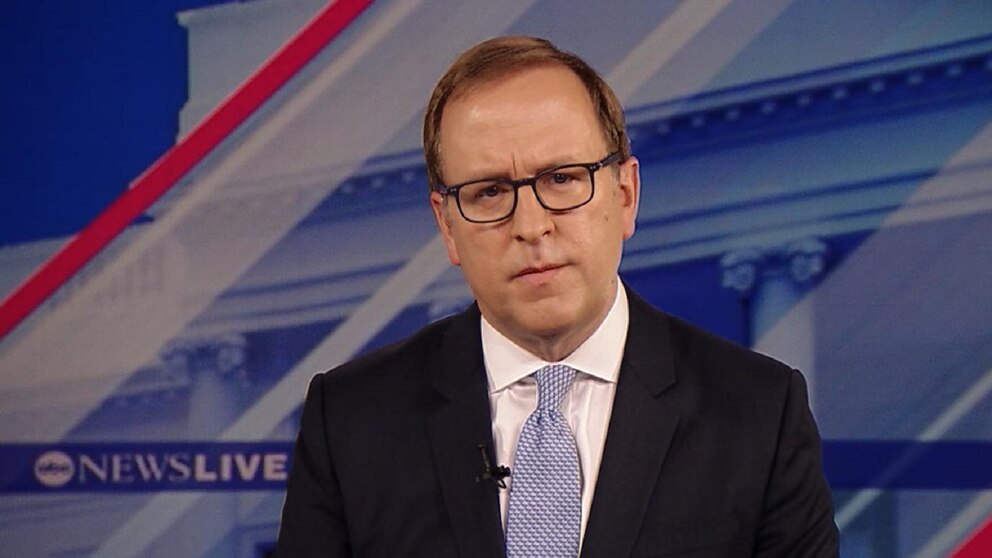
Don’t be fooled by Jonathan Karl’s dispassionate demeanor — he’s proven to be a no-nonsense force in the world of political news. This year has seen many lawmakers, like Senator Lindsay Graham (R-NC) or Sen. Tom Cotton (R-AR), lock horns with ABC News’ chief Washington correspondent, who is as unyielding as they come. As co-anchor of ABC’s Sunday show This Week, Karl stayed firmly in the fray this year, bringing a sharp edge to his interviews and relentlessly holding powerful figures accountable. With a penchant for drilling down into policy, Karl locked horns with big names on both sides of the aisle. The clash with Cotton over Medicare was textbook Karl, calling out deflections and digging into policy accountability. His extensive background covering Trump was essential once again this year as he dove into the changing tactics and language of Trump’s campaign for another term, zeroing in on themes of retribution that fueled debates and messaging. While hard core MAGA folks may not appreciate Karl’s sometimes biting comments about Trump, don’t be fooled, Trump still appears to talk to him regularly and those on the left aren’t in a safe space with Karl either. Karl’s coverage of party divisions and bold interviewing style kept him in the center of 2024’s most divisive political conversations, proving his position as one of the media’s most unflinching and influential journos.
40. Brian Stelter, Dylan Byers, and Oliver Darcy
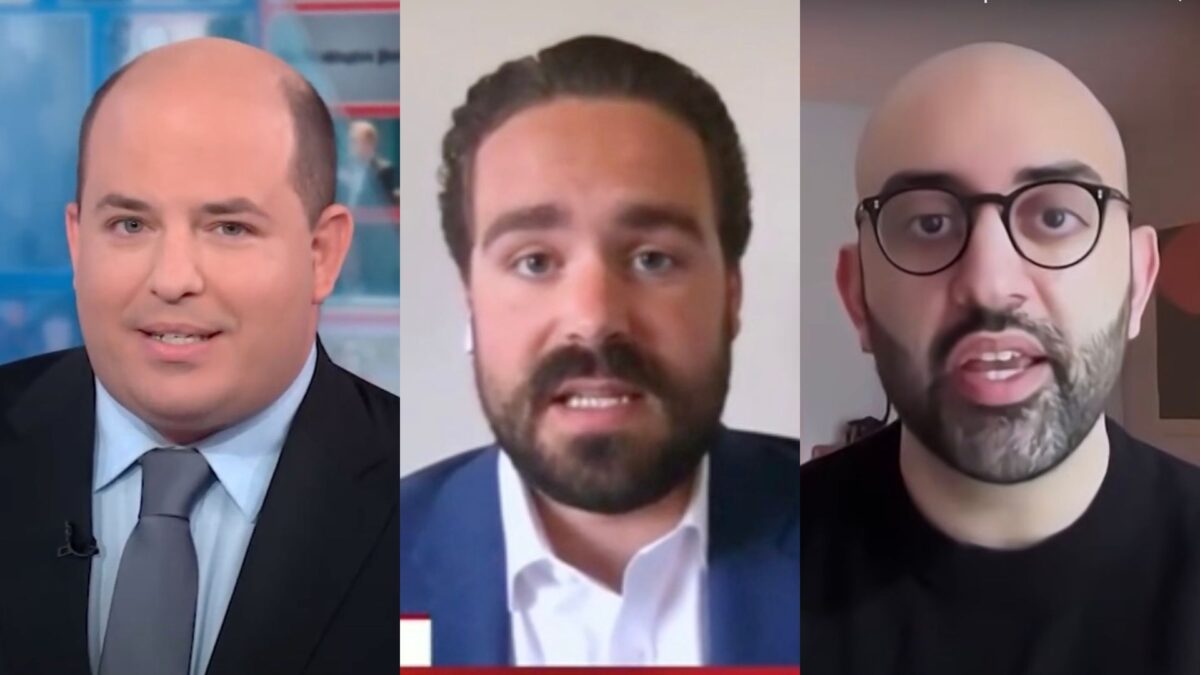
Brian Stelter has been back at CNN for just three months, but his hiatus from the network was hardly time off. In those two years, Stelter continued to report on the media for a series of publications, appeared on cable news to offer analysis, and hosted a podcast for Vanity Fair. Now, having returned triumphantly to his perch at Reliable Sources, he hasn’t missed a beat. Meanwhile, other media reporters have moved increasingly to a format Stelter established as an attraction: the humble newsletter. Media obsessives now have a bevy to choose from including Reliable Sources, recently moved to weekday mornings, as well as Status, from ex-CNN reporter Oliver Darcy, which has established itself as a must-read over just a few months, delivering hard-hitting scoops and intense scrutiny of pro-Trump media. And when it came to breaking major news about the industry this year, few rivaled Dylan Byers, Puck’s media reporter, who takes readers inside the business with reporting that regularly sends shockwaves throughout whatever newsroom he trains his sights on. These media reporters have documented the disruptions battering the news business more closely than perhaps anyone. With the media once again taking center stage as we barrel towards another Trump term, these three newsletters will guide the industry through turbulent times.
39. Lawrence O’Donnell
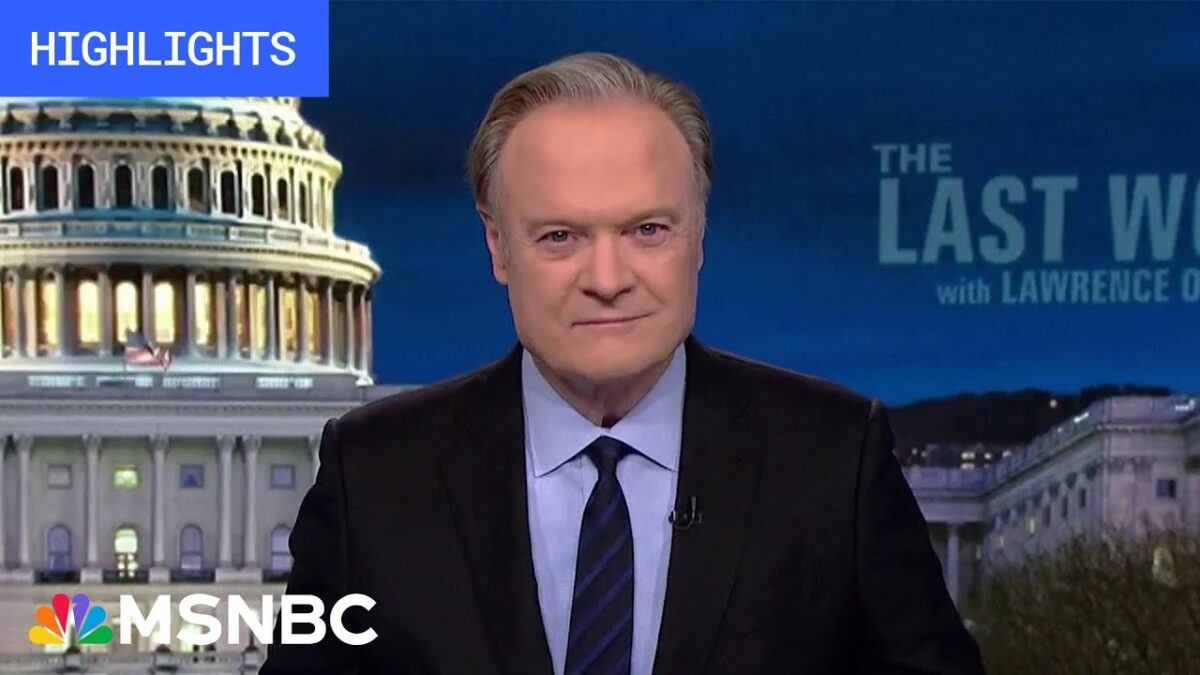
Lawrence O’Donnell spent 2024 as he did 2023 – taking on Trump on a nightly basis by relentlessly covering the former president’s latest comments or updates on his legal troubles. The longtime host of The Last Word on MSNBC even donned his reporter’s hat to do live hits outside the Manhattan courthouse where Trump was being tried. When he was not blasting the former president, O’Donnell threw shade at those he felt were giving Trump unjustifiably favorable treatment. Not only did he find CNN’s June presidential debate rules “breathtakingly absurd,” for example, he dinged his own network for carrying a Trump press conference live that he said MSNBC did not sufficiently fact check. He also regularly goes after Fox News, delivering media criticism that draws the attention of his competitors. O’Donnell’s show is pure catharsis for liberals and anti-Trumpers who believe the modern Republican Party is an existential threat to democracy. The ratings have shown the formula to work: in the wake of Trump’s victory, with MSNBC’s ratings down across the board, O’Donnell’s 10 p.m. show has often ranked first on the beleaguered network – which in turn means The Last Word blows everything on CNN out of the water. With the return of Trump to the White House in 2025, O’Donnell’s news program will double as an ersatz therapy session for members of the #Resistance.
38. Bari Weiss
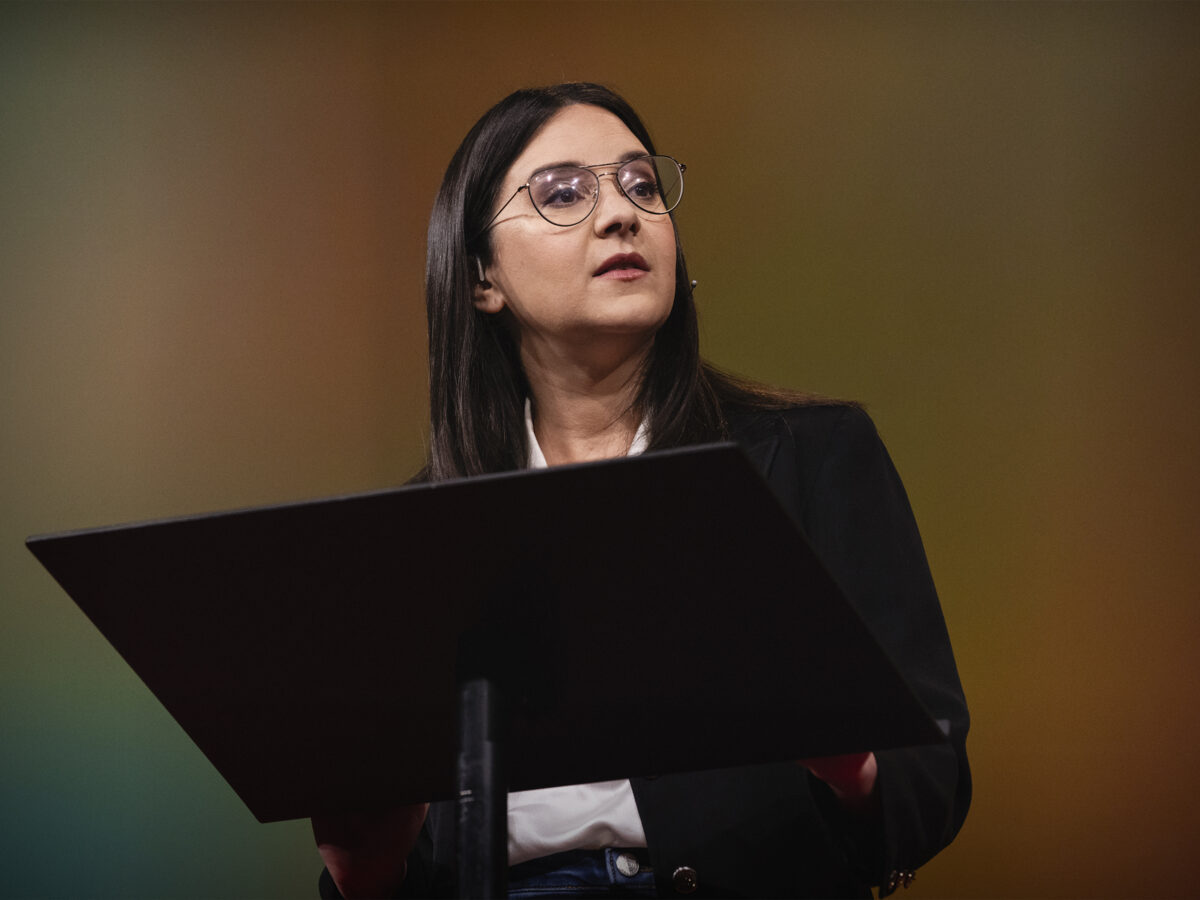
Gilberto Tadday / TED
As a student at Columbia University, Bari Weiss waged a pressure campaign at her school over professors she deemed too critical of Israel. Two decades later, she has reinvented herself as a free speech crusader waging war against cancel culture. After quitting as an opinion editor at The New York Times in 2020, Weiss went on to found The Free Press, which embraces “honesty, doggedness, and fierce independence.” With fans in high places – investors include venture capitalists such as Marc Andreesen, David Sacks, and British media tycoon Paul Marshall – the model has paid dividends. The site boasts nearly 1 million subscribers, with 135,000 paid, a staff of 50 and a valuation of $100 million. Weiss is also in the education business. In 2021, she co-founded the University of Austin, which 60 Minutes featured in a profile in November. The program informed viewers that no topic is off limits and that professors need not fear getting “canceled.” Weiss has created a big business by catering to a relatively untapped market of people who see themselves as lost in the political wilderness amid a rise of political extremism. With four more years of Trump’s America, The Free Press will only grow its audience of Trump supporters and skeptics alike.
37. Chris Wallace
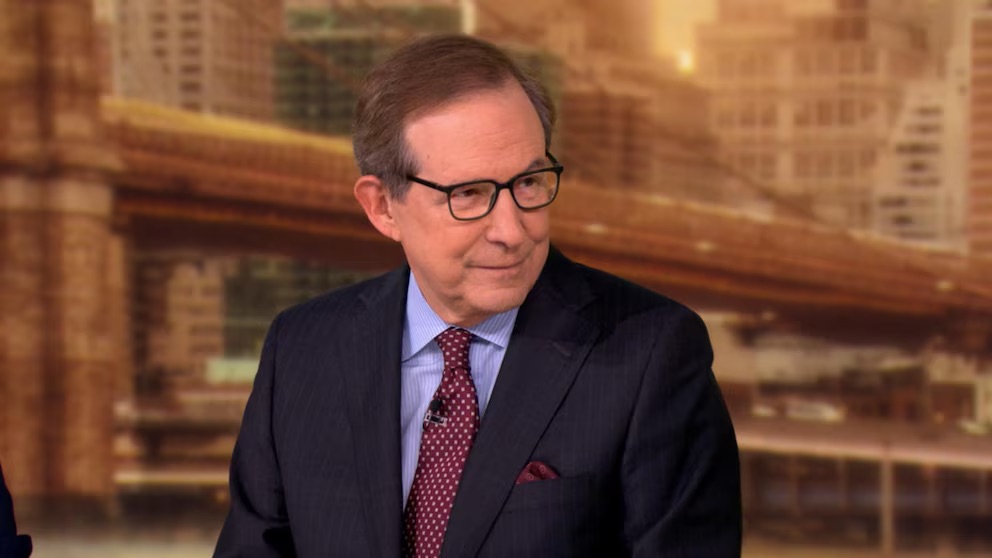
Chris Wallace, the iconic broadcaster known for his incisive interviews and extensive career across major networks, flexed his journalism muscles in a variety of ways in 2024. Wallace remained an elder statesman onscreen during CNN’s political coverage, and his HBO Max/CNN interview program Who’s Talking to Chris Wallace featured eclectic interview storytelling that mixed political newsmakers with sports, entertainment, and other figures. On top of that, Wallace continued to preside over The Chris Wallace Show on Saturday mornings, a panel program that afforded the host a chance to weigh in on the issues of the day with a regular set of journalists with varying points of view. Wallace also embarked on an extensive media tour to promote his new book Countdown 1960, which took him into unfamiliar territory like MSNBC and Mediaite’s Press Club podcast, showing a different side of Wallace as an interviewee. But his influence was most evident in his too-infrequent appearances on CNN’s live event coverage, during which his authority as a political analyst reliably produced must-watch moments. It’s a presence CNN will surely miss after his sudden departure from the network in November, for a next stage in his career that promises to be as thrilling as the rest.
36. Mehdi Hasan
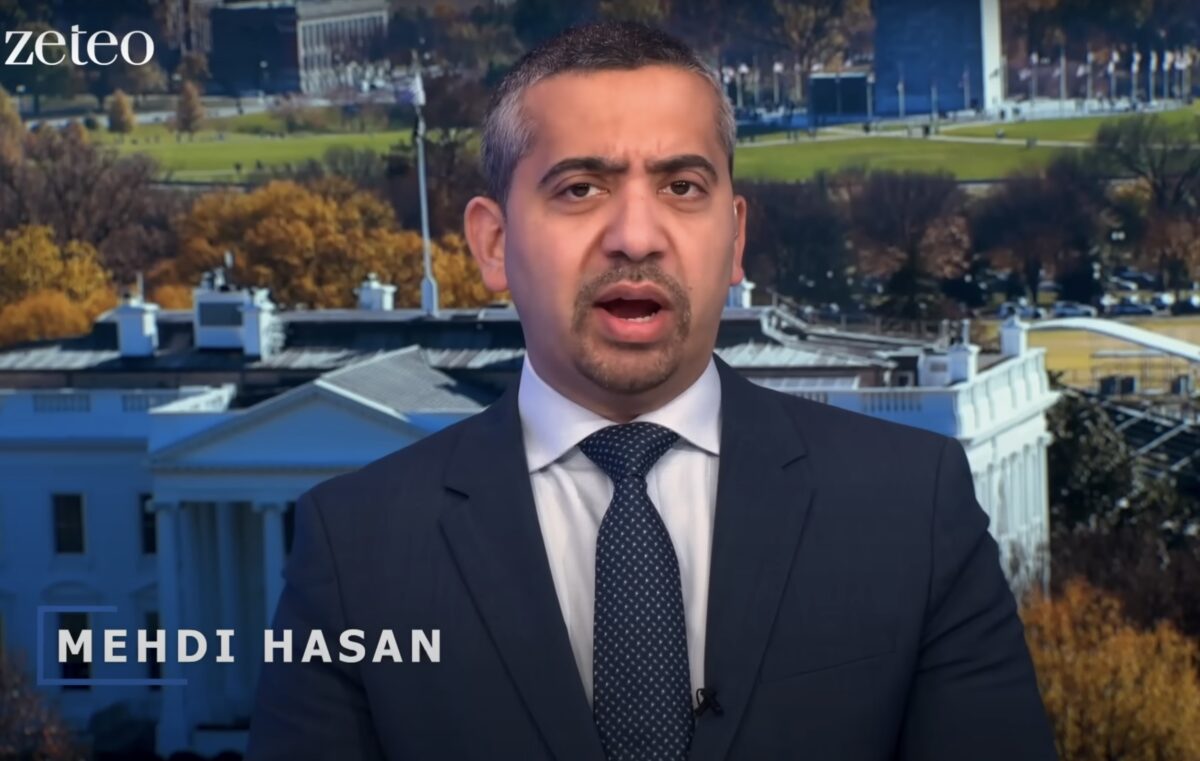
When Mehdi Hasan was ousted by MSNBC at the start of this year, he identified an opportunity. The United States has long lacked a media outlet catering towards a growing cohort in the country that craves a pro-Palestinian perspective on the Middle East and beyond. With Zeteo, Hasan’s news outlet that pairs such coverage with a liberal view on politics here at home, he seems to have cracked the code. The outlet, which mirrors other newsletter-based media companies like The Free Press, has been a resounding success, building up a large and loyal audience craving a clear-eyed view of what Hasan sees as the two fundamental issues of our time: the threat of Trump and the war in Gaza. In September, The Washington Post reported Hasan had grown Zeteo – in just four short months – into a news outlet with 30,000 paid subscribers and $3 million in annual revenue. A Substack co-founder told the Post that Zeteo is “one of the most successful and fastest growing in Substack history.” It’s easy to see why: Hasan is a relentless commentator and public intellectual favored by a growing audience disillusioned with the way The New York Times and other media institutions cover these issues. Their subscriber loss is Zeteo’s gain, and you can expect Hasan to build upon that audience as we enter a new Trump era.